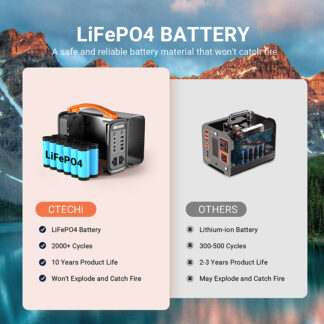Generators
The “Generators” product category comprises a range of devices that generate electrical power. These generators are designed to provide electricity when there is a power outage, in remote areas without access to the electrical grid, or for various other applications where a portable or backup power source is needed. Here are some key aspects and types of generators within this category:
Standby Generators: These generators are permanently installed outside homes or businesses and are designed to automatically switch on during a power outage. They are typically connected to a fuel source, such as natural gas or propane.
Portable Generators: Portable generators are compact and can be moved to different locations as needed. They are commonly used for camping, outdoor events, construction sites, and as backup power for homes during emergencies. They are available in various sizes and power outputs.
Inverter Generators: Inverter generators are a type of portable generator known for their quiet operation and stable power output. They are often used for recreational activities like camping and are suitable for powering sensitive electronic devices.
Industrial Generators: These generators are designed for heavy-duty applications in industrial settings. They can provide power to large machinery, factories, and construction sites.
Commercial Generators: Commercial generators are used by businesses to ensure uninterrupted operation during power outages. They are often integrated into commercial buildings and come in various sizes to meet the power needs of the business.
Residential Generators: These generators are designed for residential use, providing backup power to homes during outages. They can be powered by natural gas, propane, diesel, or gasoline.
RV Generators: RV generators are specially designed for recreational vehicles (RVs) and motorhomes. They provide power for onboard appliances, lights, and other electrical devices while camping or traveling.
Diesel Generators: Diesel generators are known for their fuel efficiency and durability. They are commonly used in construction, agriculture, and as backup power sources.
Gasoline Generators: Gasoline generators are easy to find and are often used for portable power needs. They are suitable for a variety of applications but may not be as fuel-efficient as diesel generators.
Natural Gas and Propane Generators: These generators are connected to a continuous fuel supply and are commonly used for standby power in homes and businesses. They are known for their reliability and convenience.
Solar Generators: Solar generators use solar panels to capture energy from the sun and store it in batteries. They are a renewable and environmentally friendly option for portable power.
Wind Generators: Wind generators use wind turbines to convert wind energy into electricity. They are often used in off-grid and remote locations where wind resources are abundant.
Generators play a crucial role in providing backup power and ensuring continuous electricity supply in various settings. The choice of generator type depends on factors such as power requirements, location, fuel availability, and intended use. Additionally, generator technology continues to evolve, with advancements in efficiency and environmental sustainability, making them an important part of modern energy solutions.
Showing all 2 resultsSorted by price: high to low
-

SB200Pro Outdoor Portable Power Station
$406.88 Select options This product has multiple variants. The options may be chosen on the product page -

1 Megawatt Mini Electric Hydro Generator-10 mw Francis Turbine
Read more
Showing all 2 resultsSorted by price: high to low